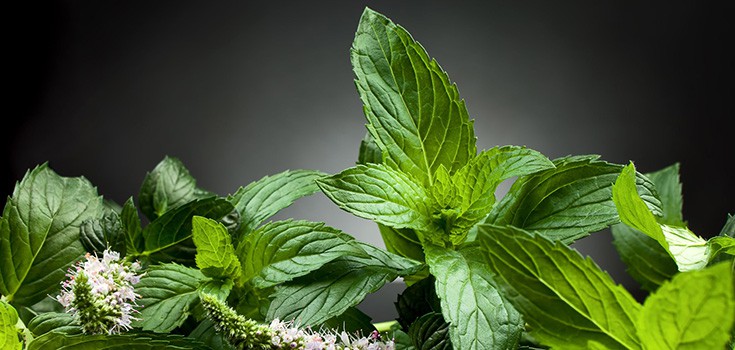Past Research Finds Mint to Protect Against Cancer and Radiation

When it comes to healing with natural solutions, many people put limits on just how effective herbs and other nutritional treatments can be. They may accept peppermint as a solution for upset stomach, for instance, but balk when you suggest it could lessen the damaging impact of radiation or even help stop cancer in its tracks. Still, there are powerful natural healers out there that can likely do everything that pharmaceuticals can, and do them with fewer side effects and dangers.
Peppermint has long been used as an herbalists friend. It has many simple uses for everything from nausea to headaches, but the unassuming and sweet-smelling herb may be useful in far more serious situations as well.
According to the BBC, researchers with the University of Salford created a drug based off of the extract of Scutellaria barbata (Skullcap barbat) from the peppermint famil that has had impressive results on blocking tumor growth.
The researchers said: “Scutellaria barbata has long been used in traditional Chinese medicine to treat several illnesses including certain types of cancer.”
For their study the researchers used the extract to target tumors and found the mint extract to block oxygen flow to the growths by attacking the blood vessels. Interestingly, it only attacked the blood vessels associated with the tumor—leaving healthy vessels alone.
Another benefit of interest to cancer patients is the radiation-protection that peppermint can offer. A study published in the Cancer Journal found that peppermint can protect against the type of radiation commonly used in cancer treatment—radiation that can otherwise have extremely unpleasant effects.
“Two species of the commonly used aromatic herb mint, Mentha piperita and M. arvensis protected mice against the γ-radiation-induced sickness and mortality. Detail investigations have also shown that the aqueous extract of M. piperita protected the vital radiosensitive organs: the testis, gastrointestinal and hemopoetic systems in mice. The radioprotective effects are possibly due to free radical scavenging, antioxidant, metal chelating, anti-inflammatory, antimutagenic, and enhancement of the DNA repair processes.”
When we think of medicinal mint, we think of boiling some leaves for a calming tea. But scientific research is showing herbs can offer solutions for simple ailments as well as protections against complex diseases and attacks to our health.

Last year I planted a mint plant… this year it is a mint patch. I eat a little piece for upset stomach or bad breath, I make tea from the fresh and dried leaves, and recently I have been adding it to my cold water pitcher. In the water pitcher it leaves just a hint of mint, and I believe it works to further clean the water. I just change out the mint leaves every couple of days.